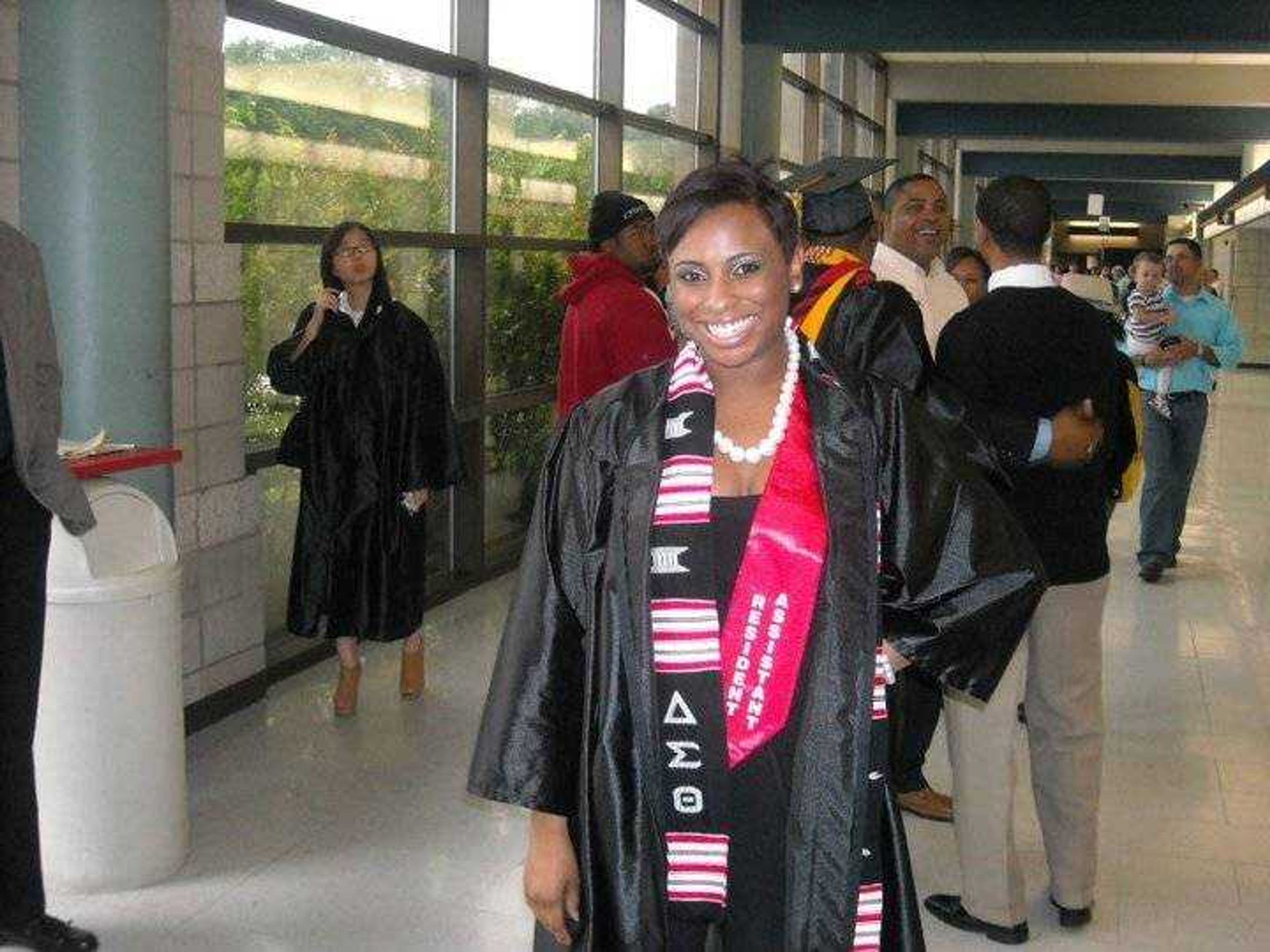Every March Women’s History Month and International Women’s Day is celebrated. Both these events are used to look at how far women have come. Four Southeast Missouri State University alumni have shared their stories from the time they graduated to where they are in their present careers.
Jasmine Evans-Jones, who works in the public relations field, has found her own way to stand out from the crowd and make sure she is not passed over for being a woman.
Her second job out of college was at an architecture firm. The firm was mostly made up of men and the marketing department was herself, a senior level manager who was also a woman and one male.
“We found that none of the males would come to us,” Evans-Jones said.
The men working at the firm always went to the man in the marketing department even if Evans-Jones and the other woman in the department could have been more help.
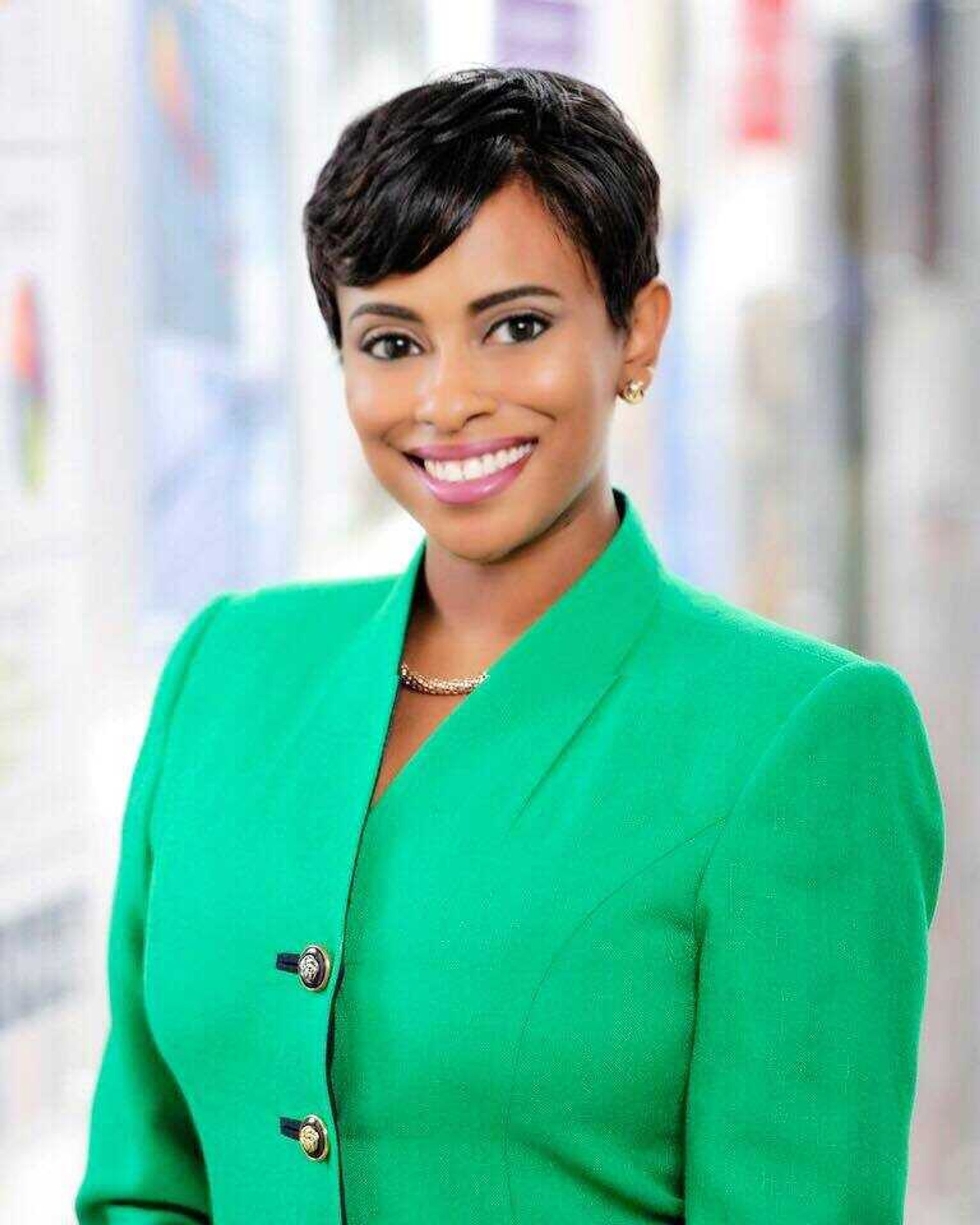
“It was a good lesson for the most part on how to stubborn myself in male-dominated environments,” she said.
She stopped wearing her engagement ring at her job so she could be on the same level as the men.
“When you wear your engagement ring, for the most part, people are automatically paying attention to the diamond,” she said.
Her wedding band was simple, more like what a man’s wedding ring would look it. She decided to only wear her wedding band about one or two weeks into working at the company.
“At that time I was engaged and that was all people paid attention to,” she said. “‘Oh, you're engaged’ or ‘Oh, you’re married’ and that wasn’t the first thing I wanted people to know about me.”
She noticed no one ever asked the men at the firm about their wedding rings. She would even order the same drinks as the men at work events.
“Not only being a woman but being the youngest and being an African-American, so for me it was, ‘What is the absolute best thing I can do to put myself on a level playing field?’” Evans-Jones said.
Evans-Jones loves being a woman and attended the St. Louis Women's March on January 21.
“I like to describe myself as a walking ball of estrogen,” she said.
She found the Women’s March empowering and moving.
“To see dads with their sons and kids with little ‘future feminist’ T-shirts on and those types of things to see that this is a progression,” she said. “It’s not just me, it’s bigger than my bubble.”
Her biggest role model growing up was her mother.
“She was the first person I saw doing something different,” Evans-Jones said.
She is a second-generation college student and since her mother had her when she was young she attended classes with her.
“My mother got her master’s, I was there for all of that,” she said.
She learned a lot from her mother’s example.
“To go to class with her I learned the value of education,” she said. “She’s everything, to say the least.”
Her role models now include the president and vice president who worked with her first job out of college at Forest Park Forever. They helped her learn what a professional woman was.
“Obviously, Michelle Obama just because she’s a kick-ass woman,” Evans-Jones said. “Probably those three [women].”
Recently she has achieved a goal she set when she was 25 years old. She made the Delux magazine Emerging 30 list.
“That was a goal of mine to make someone’s 30 under 30 list,” she said.
She felt relieved to make the list, finding out in February.
“For that to finally pay off in a way and to be an actual real tangible goal to check off that goal, that was enough to say, ‘OK, Jasmine, we can now move on to our next set of goals,’” she said.
Before she made it on the Emerging 30 list she attended Southeast Missouri State University.
Evans-Jones earned a degree from Southeast in public relation with a minor in retails sales management.
Evans-Jones began her career as a marketing intern for Forest Park Forever for three years.
“My first job out of Southeast was very fortunate enough to be in my field,” Evans-Jones said.
She was about to make connections, network and was able to move on to her next career move.
“That was definitely the best first job you could ever have,” Evans-Jones said.
Between her job at Forest Park Forever and being the brand manager for KAI Design & Build she earned a master's degree from Lindenwood.
“It was the first time I was really in a manager position,” Evans-Jones said.
However, she wanted to work for a not-for-profit and start her own company.
She is the currently the marketing manager for Beyond Housing, which is a not-for-profit, a professor at Lindenwood University and owner of Jasmine D Evans Public Relations LLC.
Evans-Jones felt ready to go into her degree field after graduation in 2011 because of the preparation she had.
“The mass comm department at Southeast was amazing,” Evans-Jones said.
She still uses her notes she took during Southeast classes when teaching her students at Lindenwood University.
“Southeast just really prepared me to launch into the real world and I actually loved my time at Southeast,” Evans-Jones said.
She had plans to be an advertising major when she first attended. However, after the first day of her public relations class with Susan Gonders, a professor at Southeast, she changed her major.
“After the first day of that class I was blown way,” she said.
Public relations was the right fit for her because it was behind the scenes.
“It filled kind of my natural thing, I wanted to help people become better and again be behind the scenes,” she said.
She came to Southeast because of the mass communications department and the distance from home was not too far.
“It seemed very comfortable when I went to visit,” Evans-Jones said.

Cindy Boren, sports writer at the Washington Post and teacher at Georgetown University, has experience first hand with push back in her field.
“There was a player who threw a blow dryer in the locker room at me,” Boren said.
She still does not understand why he did it or what made him do it. When it happen she was speaking with the leader of the team who told her to ignore the other player.
“[The leader of the team] set the tone and I was very fortunate,” Boren said. “He really made it OK for me to be in the locker room and I never had any problems with that team after that.”
She is thankful for the women who came before her in the sports journalism field.
“I was fortunate, I wasn’t in the first wave of women who were covering sports and going into locker rooms,” Boren said. “I won’t begin to even pretend it was as traumatic and difficult for me as it was for some of them. They were really the pioneers.”
Boren said she always had to deal with small things men in her field never had to deal with. Going into locker rooms after games, someone at the entrance would always stop her.
“He would look at my press credentials up close and scrutinized every word on it and he didn’t do that to the guys,” Boren said. “It wasn’t like I was out there once, I was out there every night.”
Today she does not have as much push back as she once did.
“I can’t remember the last time that was really an incident,” Boren said.
Now Boren said she will get emails from people who disagree with her opinions.
“I will get emails from people saying ‘What do you know, you’re just a woman, what do you know, you never played the game,’ and nastier than that,” Boren said.
She said she always emails people back trying to understand more of where they are coming from.
“Sometimes you’ll convince people,” Boren said.
She knows there are still issues that need to be taken care of.
“It's surprising to me, I came of age in the women’s movement, you thought ‘Oh, that all has been taken care of,’ but it hasn’t been taken care of in terms of equal pay,” Boren said. “Equal opportunity is hit and miss.”
Boren said no matter what the rights are people are starting to understand that people always have to fight for them.
“Nothing is etched in stone, you always have to fight for your rights,” Boren said.
Being in Washington, D.C., at the time of Women’s March, she got to see it and said the women at the march are her role models.
“All of them,” she said. “Seeing the Women’s March was unbelievable.”
She grew up watching sports and understanding them but never did play them.
“This was the time before Title IX, so there really were no girls sport teams,” Boren said.
It was her high school journalism teacher who asked her to cover her first sporting event.
“We were looking at assignments one day for the newspaper and the adviser came over to me and said ‘Your family likes sports don’t they?’ and I said ‘Yeah,’” Boren said. “She said ‘Well, why don’t you go cover the football game?’”
After covering that first football game she said she fell in love with covering sports, however, did not originally pursue it going into college.
Being from the Cape Girardeau area, attending Southeast was an easy choice.
“I was from Cape and it seemed to be the right place for me at the moment,” Boren said.
She began school unsure of what she was going to major in.
“I had studied some journalism in high school and liked it, but I just didn't know what I really wanted to do,” Boren said. “I thought SEMO could offer me the opportunity to study everything and get my bearing.”
After graduating from Southeast in 1975 with an English degree, she enrolled in law school at the University of Missouri in Kansas City. She worked part time at the Kansas City Star taking freelance assignments.
“Next thing you know they were offering me a job,” Boren said. “I thought, ‘Well I can always do law later.’”
She never did get back into law.
For students looking to enter into the journalism field, she says get ready to do low-level work, read everything and do research.
“Look for good stories,” Boren said. “The good stories are everywhere.”
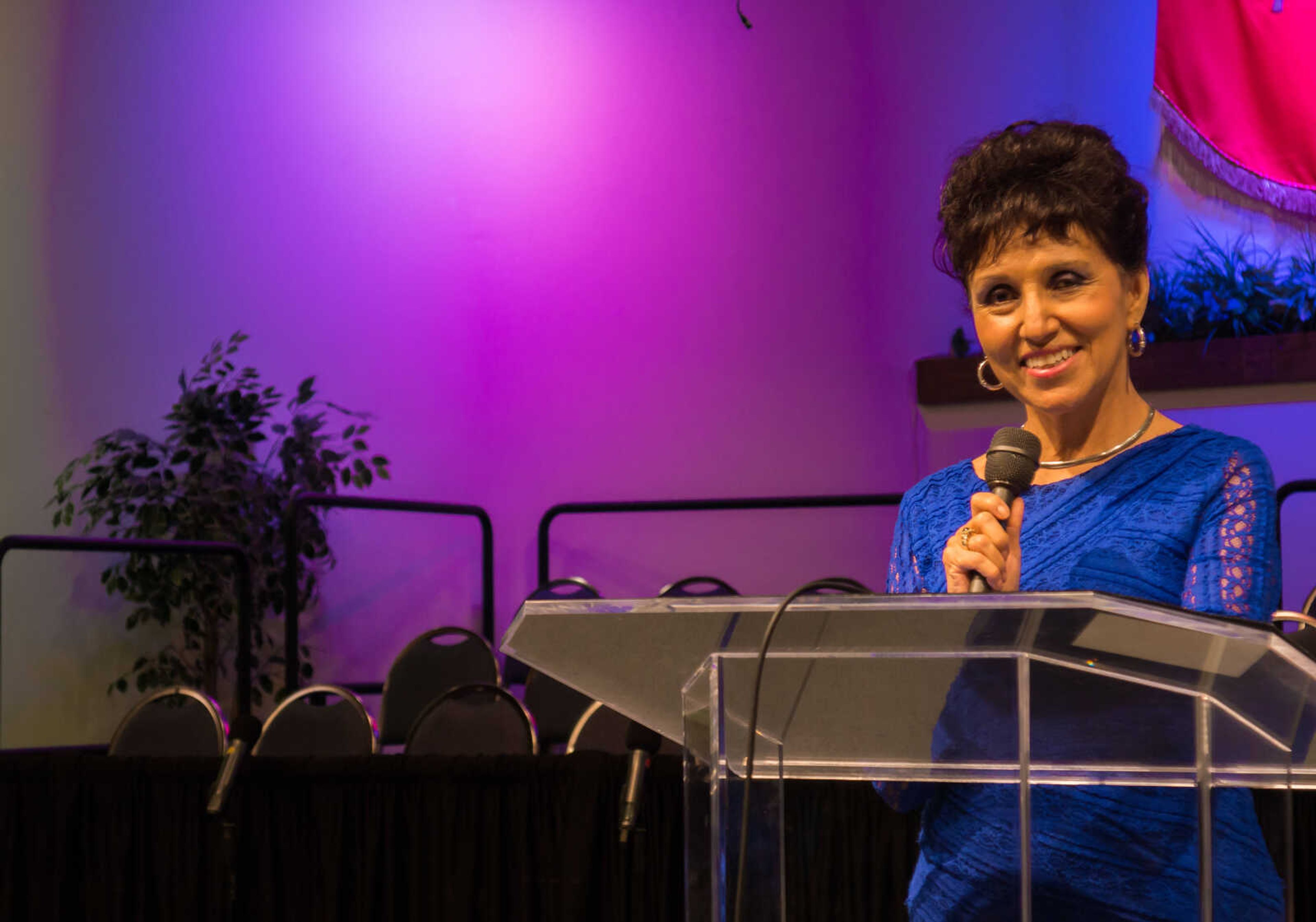
Janet Perez Eckles is physically blind but that does not stop her from working.
Eckles started working after she lost her sight to a hereditary disease at the age of 30. Before she lost her sight she was a stay-at-home mother to her three sons.
When her vision started to go away she prayed it would not and was not planning on losing it.
“[My family] never expected it,” she said.
Her husband, who she met at Southeast Missouri State University, ended up leaving her after she lost her vision.
“My husband couldn’t handle it,” Eckles said.
It was after she had lost her husband and her sight when a friend invited her to a Christian church.
“I came to know God’s word and his promises,” she said. “I invited Jesus as my savior Lord of all, and the rest, as they say, is history.”
Her husband soon returned and they have now been married for more than 40 years.
“My blindness in a way opened so many beautiful doors and allowed me to do so much more,” Eckles said.
She was raised Catholic but after losing her vision she came to God in a different way.
“Before I was spiritually blind, I could see physically but I was spiritually blind,” she said.
She has been able to learn how to cook, clean, use a computer, do her nails and makeup, and travel on her own.
“It could have been a limitation but instead it opened a lot of doors,” Eckles said.
She started working as a Spanish translator in courtrooms and still continues to do this.
“Before I lost my sight I was a happy mom at home,” she said. “I had not started a career.”
She was a supporter of stay-at-home moms and spoke about it in many communities.
“I was a very strong and outspoken supporter of moms staying at home,” she said. “That being the most important job for a mom and back in the ‘70s that was not a popular view because the feminist movement was strong and well, saying, ‘Women belong in the corporate world.’”
Eckles is currently an international speaker, contributing writer for many magazines, author of four books, host a radio show called “Cooking in the Dark,” life coach, Sunday school teacher, and president and founder of JC Empowerment.
Today she sees a lot of women trying to break the “glass ceiling” and earn equal pay.
“I’ve seen women trying so hard to fit in the world mold of success that they forgot who they really are,” she said.
Eckles said when women are focused on breaking the glass ceiling or earning equal pay they become self-focused.
“Many women make that mistake of saying, ‘Get out of my way I know where I am going and I am going to get there,’” she said. “Rather than say, “Who am I in God’s eyes.’”
She advises women to follow God’s plan instead of their own path.
She looks up to Kellyanne Conway and how she has found success without being self-focused.
“She is about supporting somebody for the better of the country, supporting somebody for what’s right, what’s true, what’s helpful, what’s beneficial,” she said. “Not [saying] ‘out of my way I am Kellyanne, I am going places.’”
When she was 12 her family moved from Bolivia.
“Not knowing the language was extremely hard,” she said.
Her parents enrolled her in school and she had to learn English on her own.
“My parents enrolled me in school and I had to sink or swim,” she said. “I had no choice.”
After being in school for about six months she was able to understand and speak English.
As a girl, she looked up to her grandmother who would read her stories and the Bible.
“I always wanted to be like her,” Perez Eckles said.
Today she looks up to Beth Moore, author and founder of Living Proof Ministries, because of how she teaches.
“She has a spunk about her that speaks about her genuine convictions with no apology,” she said. “She’s bold in what she believes but she’s impactful in what she teaches.”
Before she was blind and started working she attended Southeast. Being one of the few students with a Latin heritage made her stand out.
“I was unique, there was no such thing as discrimination,” she said.
Attending Southeast was an easy choice for a few reasons.
“It was closest and I’m going to be real honest, the most affable, and my best friend was going there,” Perez Eckles said.
She graduated in 1975 and earned a degree in business administration office management. She still uses many skills she learned at Southeast today. Lots of the skills she learned at Southeast help her run her business today.
“[It] helps me work with the team that I have working for me, with me,” she said.
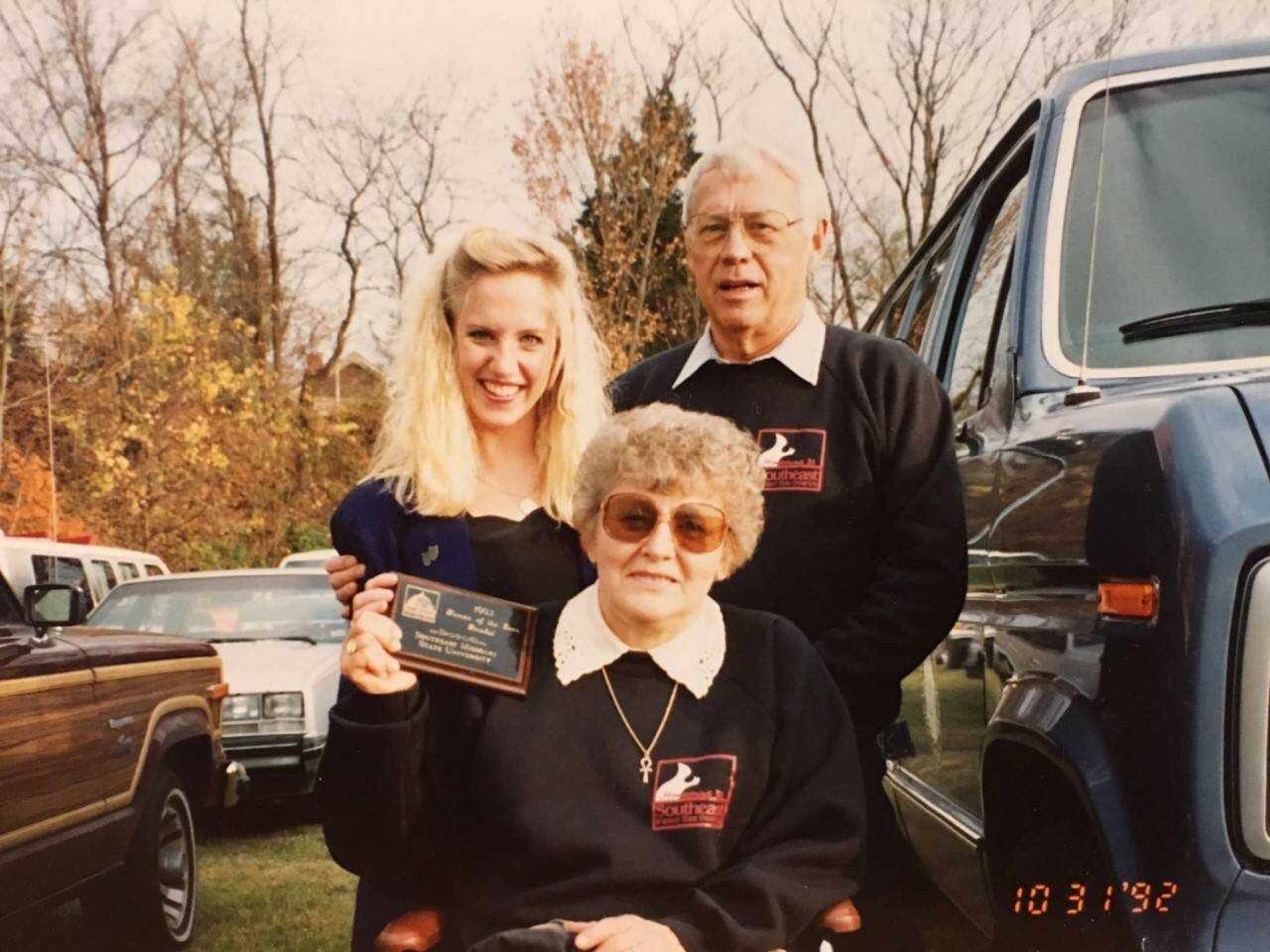
Abbie Crites-Leoni earned a theater degree but is currently a United States Magistrate Judge.
Crites-Leoni attended high school in Wyoming. She was looking to go far away and attend Southeast Missouri State University majoring in theater.
“I wanted to go very far away from home but I thought it would be nice to have family close by,” she said.
Also, her parents had attended Southeast. Her family was originally from the Cape Girardeau area so she had family living nearby and attending Southeast.
She graduated in 1993 with a degree in theater and Spanish with a minor in mass communications and was looking to go back to school.
“Theater degree wasn’t the path that I was wanting to follow,” she said.
After taking a year off she attended SIU Carbondale for performance studies and earned her Master’s but decided to apply for law school.
“When I was in high school I thought I wanted to be a lawyer,” she said. “So I kind of I guess returned to that dream.”
She only applied to one school and was accepted. After the first year she did not know if she was going to stay but she ended up staying.
“They say in law school the first year they work you to death, the second year they scare you to death and the third year they bore you to death,” she said.
Crites-Leoni said the ratio of men to women in law school was pretty even, however, she sees more men in the courtroom.
“I think maybe what women do with their law degrees after law school is different than what men do on average,” Crites-Leoni said.
During a summer break from law school, she was an intern for Cape County Prosecutor's Office and out of law school she got a job at the office working there for a year.
She started off by handling the juvenile delinquent cases and soon they made a position for a full-time attorney to handle all the juvenile delinquent cases and she got the job. She then moved on to the U.S. attorney’s office and became a federal prosecutor by her third year out of law school.
She enjoyed the job so much and thought she would stay in that job.
“I thought I was going to be a career prosecutor,” she said.
After being in the job for a while she wanted to do something more.
“I kind of got to the point where I was like, ‘You know, I wonder if there is something more that I could do to contribute to the justice system,’” Crites-Leoni said.
She had heard a United States Magistrate Judge in the area was retiring. She applied and was appointed. She was the first female resident in Cape Girardeau to be appointed.
As a United States Magistrate Judge, she handles both criminal and civil duties. For the criminal duties, she handles everything before trial, including things like search warrants. For the civil duties, she handles the cases from start to finish.
When she was starting out she had someone ask if she was a court reporter.
“The very first time I appeared in court in the common pleas courthouse one of the lawyers came up to me and asked me if I was the new court reporter,” Crites-Leoni said.
She told him right away that she was an attorney.
Looking at past photos of judges she stands out because of her appearance.
“[The judges are] typically older white men with white hair and that’s changing,” she said.
At the Cape Girardeau courthouse, she said there is a good mix of old and younger judges and female and male judges.
She has not had any problems with disrespect recently but in the past she has.
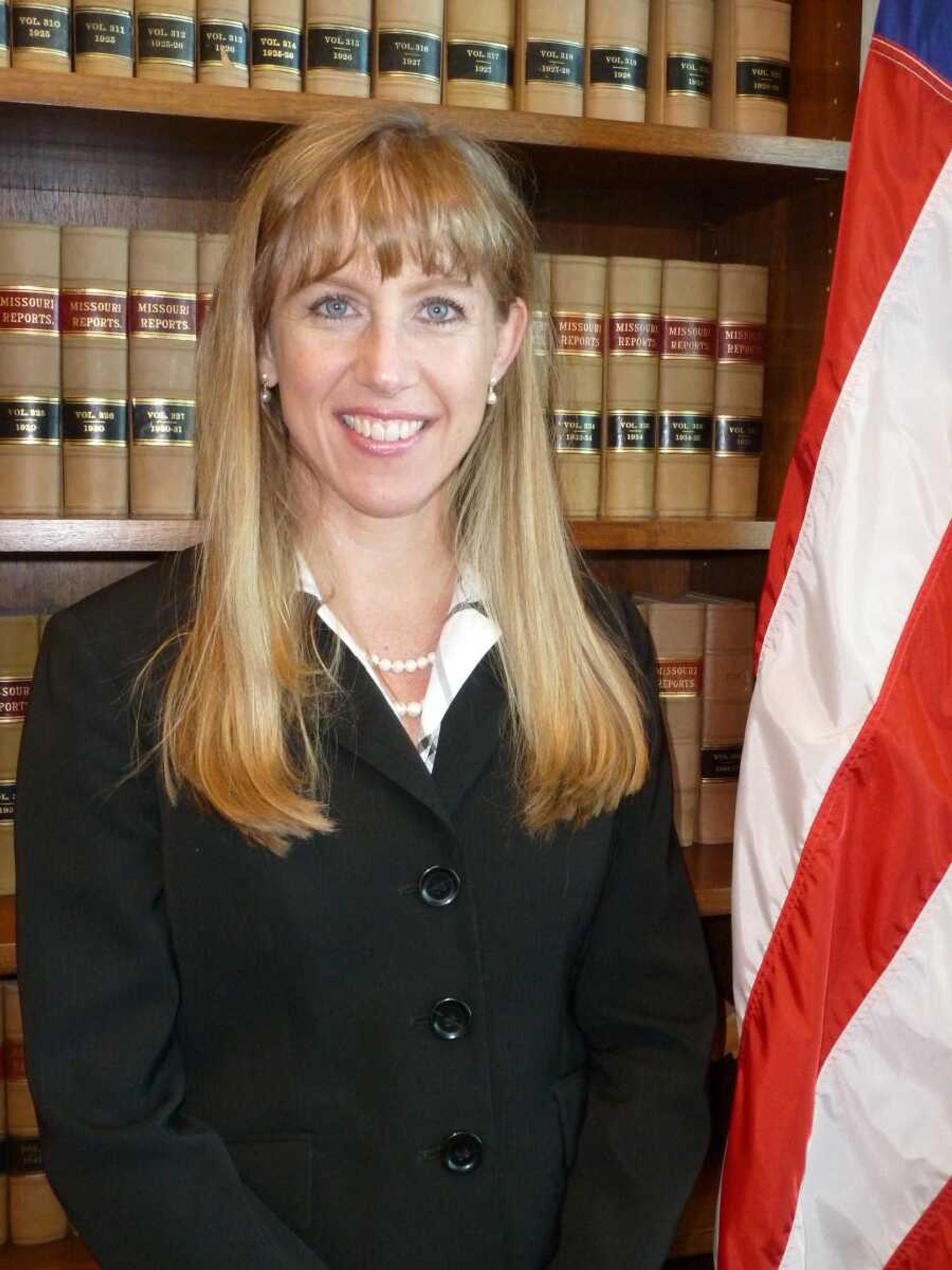
“I have had lawyers and judges speak to me inappropriately, but I’ve always stood up for myself and won’t let those things fly,” Crites-Leoni said.
In her early career, she said she was given a raise so her salary and thought it was so her salary would match the men's and for good performance.
“I was told it was basically to get me more even to where I should be,” she said. “Now she didn’t say it was men but in any event that did happen to me.”
She thinks the women’s movement currently going on should be more focused on issues like the wage gap.
“I think there’s a lot of politics in the movement right now, which I think is really unfortunate,” Crites-Leoni said. “I think that takes away from the real heart of the matter.”
She thinks men and women are now sharing household duties better than they use to.
“I think our perceptions as a society are getting more advanced and there is a greater sharing of household responsibilities,” she said.
Growing up she looked up to her mom.
“My mom is a tough lady,” she said.
She looked up to her mom because she was not afraid to share her opinions.
She also looked up to women like Sandra Day O'Connor and women who served on the U.S. Supreme Court.
“Any women who were leaders and stood out,” she said.
